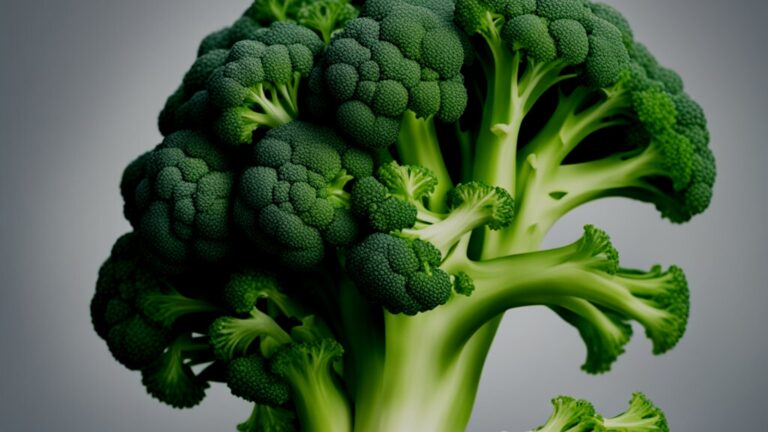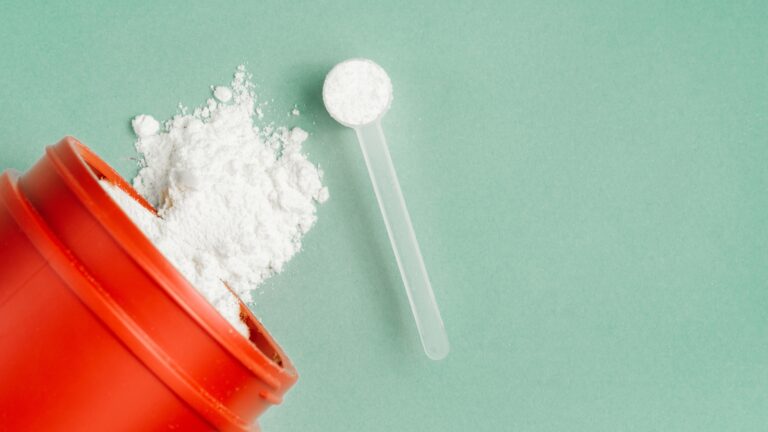Life is full of stress, and it’s often unavoidable. Whether it’s due to our busy work schedules, personal struggles, or even environmental factors, stress can have a significant impact on various aspects of our health, including our hormones. One hormone that can be affected by stress is testosterone, a vital hormone for both men and women. Though it’s more prominent in men, it also plays a crucial role in women’s health and well-being.
Understanding the connection between stress and how it can affect your testosterone levels can give us valuable insights into our health and how we can better manage stress to maintain optimal hormone balance. In this article, we will explore how stress can impact testosterone levels and the physiological connections between the two, as well as the effects of chronic stress on testosterone production.
Key Takeaways
- Stress can impact testosterone levels in both men and women.
- Chronic stress may lead to a reduction in testosterone production.
- Managing stress is important to maintain optimal hormone balance.
Understanding Stress and Testosterone

As we delve deeper into the connection between stress and testosterone, it’s important to first understand these two concepts individually. Stress is a natural response to external pressures or threats, whether real or imagined. It serves as a biological alarm system that releases various hormones, including cortisol, to help our bodies adapt and respond to challenging situations.
Testosterone, on the other hand, is a hormone primarily produced by the testicles in men, and in smaller amounts by the ovaries in women. This hormone is responsible for the development of male sex characteristics as well as maintaining muscle mass, bone density, and even influencin behaviour.
Now, let’s explore the impact of stress on testosterone levels. Studies have shown that stress can lead to an increase in free testosterone levels initially. However, upon further examination, it appears the relationship between stress and testosterone is context-dependent. In incidents of acute stress, testosterone levels might indeed increase, as mentioned earlier. In contrast, chronic stress may result in a decrease in testosterone levels over time.
This complex interaction between stress and testosterone can be influenced by several factors, such as social status and sympathetic reactivity. For instance, a study suggests that social status can shape stress-induced testosterone changes. It is believed that having a higher social status can protect against the adverse effects of anxiety and stress on testosterone levels, while lower social status might make an individual more susceptible.
Another interesting finding is that emotional intelligence might play a role in cortisol reactivity to stress. Research has shown that emotional intelligence and testosterone jointly predict cortisol reactivity, meaning that people with higher emotional intelligence might be better equipped to manage their stress responses.
To sum up, stress can indeed impact testosterone levels, but the relationship between the two is intricate, being influenced by various factors. The outcome of this interaction ranges from a potential initial increase in testosterone to a gradual decrease in response to chronic stress. Furthermore, individual characteristics such as social status, emotional intelligence, and even certain underlying health conditions might also affect the relationship between stress and testosterone in different ways.
Physiological Connections between Stress and Testosterone
Role of the Hypothalamic Pituitary Adrenal Axis
The Hypothalamic Pituitary Adrenal (HPA) axis plays a crucial role in the stress response. When I experience stress, my hypothalamus releases corticotropin-releasing hormone (CRH), which then signals the pituitary gland to release adrenocorticotropic hormone (ACTH). In turn, ACTH stimulates the production of cortisol, a stress hormone, from the adrenal glands.
Cortisol affects various aspects of my body’s functioning, such as blood pressure, glucose metabolism, and immune system regulation. However, it’s important to note that cortisol and testosterone have an antagonistic relationship. When cortisol levels increase, testosterone levels decrease, and vice versa. This is because both hormones share a common precursor – pregnenolone. As a result, when my body is under stress and requires more cortisol, resources are shifted away from the production of testosterone.
Adrenal Glands and Testosterone Levels
The adrenal glands are involved in the production of stress hormones such as cortisol, as well as a small portion of testosterone. In response to acute stress, cortisol levels increase and can temporarily lower testosterone levels. However, chronic stress can have more lasting effects on my testosterone production.
There are several factors that can influence the relationship between stress and testosterone levels. For instance, the intensity and duration of the stressor may affect how my body responds. Some research suggests that prolonged endurance exercise can lead to declines in testosterone levels, while short-term stress can cause transient reductions in testosterone. Moreover, psychological stress can also impact testosterone secretion.
To summarise, both the HPA axis and adrenal glands play a role in the link between stress and testosterone levels. Elevated cortisol levels, particularly in times of chronic stress, can lead to decreased testosterone production as resources are diverted away from testosterone synthesis. It’s important to manage stress effectively, as it has various implications on my overall health, including my hormonal balance.
Chronic Stress Causing Low Testosterone?

As I’ve delved into understanding the relationship between stress and testosterone, I came across evidence that chronic stress negatively affects testosterone levels in men. It appears that long-term exposure to stressors can lead to an imbalance in the hormonal system, as it pertains to testosterone. In particular, two main hormones are involved in this process: corticosterone and testosterone.
One study I found indicated that chronic stress results in an increase in plasma corticosterone levels and a decrease in testosterone levels in male rats (source). It is worth noting that corticosterone is the primary stress hormone in rodents, equivalent to cortisol in humans.
In another interesting study, researchers observed how chronic stress could impact masculine sexual behaviour, corticosterone and testosterone in male rats (source). The findings suggest that chronic stress might decrease testosterone levels and have a negative impact on sexual behaviour – a clear indication that stress can negatively affect various physiological systems.
However, there are situations in which sexual behaviour can attenuate the effects of chronic stress on body weight, testes, sexual accessory glands, and plasma testosterone in male rats (source). This means that engaging in healthy sexual behaviour may serve as a buffer against some of the adverse effects of chronic stress on testosterone levels.
To summarise the effects of chronic stress on testosterone, consider the following key points:
- Chronic stress can increase corticosterone (or cortisol in humans) and decrease testosterone levels.
- Long-term exposure to stress may negatively impact sexual behaviour in males.
- Engaging in healthy sexual behaviour could potentially mitigate some of the negative effects of chronic stress on testosterone levels.
It is essential to bear in mind that managing stress effectively is crucial for maintaining hormonal balance and overall well-being. In cases where chronic stress seems to impact testosterone levels, it becomes vital to address the underlying stressors and adopt strategies to improve stress tolerance.
The Role of Cortisol in Testosterone Production
Cortisol-Testosterone Balance
During stressful situations, our body releases a hormone called cortisol which helps to regulate our stress response. It is a crucial hormone for maintaining balance in our body, especially when faced with physical or psychological challenges. On the other hand, testosterone is an essential hormone, predominantly in men, that is responsible for regulating various functions such as muscle growth, mood, and libido.
Research has shown that there is a relationship between cortisol and testosterone, and a balance between these two hormones is necessary for optimal health. While moderate levels of cortisol can aid in our ability to respond to stress, excessive cortisol levels can negatively impact testosterone production.
Impact of High Cortisol on Testosterone
When cortisol levels become too high due to chronic stress or other factors, it can lead to a significant decrease in testosterone levels. One study found that elevated cortisol levels were negatively correlated with testosterone levels in stressful situations. This means that when cortisol is high, testosterone levels tend to be lower.
The negative impact of high cortisol on testosterone can manifest in several ways:
- Reduced muscle growth: Testosterone plays a key role in muscle development. High cortisol levels can hinder muscle growth by limiting testosterone production.
- Diminished libido: A healthy testosterone level is vital for maintaining sexual desire. Elevated cortisol levels can lead to a decrease in sex drive.
- Decreased mood and energy levels: Testosterone is instrumental in regulating mood and energy, and reduced levels can result in fatigue and a negative outlook.
In summary, maintaining a healthy balance between cortisol and testosterone is crucial for overall well-being. While cortisol helps us to cope with stress, persistently high levels may lead to a decrease in testosterone, which can have detrimental effects on multiple aspects of our health.
Influence of Stress on Testosterone in Women
Androgens in Women
As a woman, I understand the importance of androgens in our bodies. Androgens, such as testosterone, play a crucial role in maintaining bone density, muscle mass, and libido. Although women have lower levels of testosterone compared to men, it is still an essential hormone in our system.
Stress can impact testosterone levels in women. A study has shown that women with high-stress levels tend to have lower testosterone levels than those with low-stress levels. Additionally, anxiety and stress-coping strategies can influence testosterone levels in women.
Cortisol Levels in a Female Body
As I face stress in my daily life, I am mindful of its effect on my cortisol levels. Cortisol, commonly known as the “stress hormone,” is produced by the adrenal glands in response to stress. It helps regulate bodily functions like blood pressure, glucose levels, and inflammation.
However, when the body is under prolonged stress, cortisol levels can rise, causing various health issues. Cortisol can interfere with testosterone production in women, leading to an imbalance in hormone levels.
One study demonstrates that exogenous testosterone can attenuate the integrated central stress response in healthy young women. In other words, administering testosterone under controlled conditions can potentially mitigate the negative impact of stress on hormonal balance.
In conclusion, stress can indeed impact testosterone levels in women. By understanding the interplay of cortisol, stress, and testosterone, I can take better care of my health and maintain an optimal hormonal balance.
Managing Stress to Maintain Testosterone Levels
Lifestyle Modifications
In order to manage stress and maintain healthy testosterone levels, it’s vital to adopt certain lifestyle modifications. I recommend including regular exercise in your routine, as it has been proven to reduce stress AND release endorphins that make you feel better. In addition, getting enough sleep each night is crucial, as lack of sleep can exacerbate stress and negatively impact testosterone levels1.
Eating a balanced diet is another important aspect of stress management. Foods that are high in magnesium and zinc, such as walnuts, spinach, and oysters, may help in maintaining testosterone levels. Moreover, incorporating stress-reducing activities like meditation, yoga or deep-breathing exercises can be helpful in maintaining mental and emotional well-being2.
Medical Interventions for Stress Relief
If implementing lifestyle modifications doesn’t seem to be enough, you might consider seeking medical help to manage your stress levels. There are a variety of options, including therapy or counselling. Professionals like psychologists, psychiatrists and counsellors can provide guidance and suggest techniques to cope with stress more effectively3.
Another option to look into is medication. Treatments like anti-anxiety medications or antidepressants may help in reducing stress and anxiety and, in turn, help maintain testosterone levels4. It’s essential, however, to consult a healthcare professional before beginning any medication to ensure it’s the best option for you. They can evaluate your situation, guide you through the process, and recommend the appropriate treatments.
Footnotes
- Importance of Sleep for Testosterone Levels ↩
- Meditation and Yoga for Stress Reduction ↩
- Therapy for Stress Management ↩
- Impact of Medication on Stress Hormone Levels ↩
The Link Between More Testosterone and Less Stress
Testosterone as a Stress Buffer
In my understanding and research, testosterone has been shown to act as a buffer against the effects of stress. This hormone can modulate the stress response in both men and women, with higher levels of testosterone being associated with reduced stress reactivity. A study supported this notion, suggesting that testosterone could have a similar effect on the immune system as corticosteroids, promoting immunoredistribution rather than suppression.
One of the possible reasons for this buffering effect is that testosterone influences the release of stress hormones, such as cortisol. Evidence from a separate study indicates a negative relationship between testosterone and stress hormones. When testosterone levels are increased, the stress hormone levels tend to decrease, contributing to a reduction in the overall stress response.
The Effect of Sex Hormones on Stress Response
Moreover, sex hormones, including testosterone and oestrogen, have been found to play a significant role in modulating the stress response in both men and women. Longitudinal methods used in a contemporary study revealed an association between sexual desire, testosterone, and stress in healthy individuals over time.
To exemplify this relationship, the stress response can be broken down into three components:
- Hypothalamic-pituitary-adrenal (HPA) axis: Testosterone has been shown to significantly impact the HPA axis, which is crucial for stress adaptation. In particular, the inhibitory effect of testosterone on the HPA response to stress is mediated by the medial preoptic area in the brain.
- Immune system: As mentioned earlier, testosterone’s impact on the immune system can be regarded as immunoredistribution, with the hormone potentially acting as a protector against the negative consequences of stress on the immune function.
- Behaviour: Acute stress is known to influence testosterone levels in individuals with different psychological disorders such as borderline personality disorder and post-traumatic stress disorder. A recent investigation documented altered stress responsivity patterns affecting testosterone levels in these patient groups.
In conclusion, the influence of testosterone on the stress response is multifaceted, and a better understanding of these interactions is essential for developing strategies to manage stress effectively.
Conclusion
In this article, I explored the impact of stress on testosterone levels. Based on the information gathered from various studies, it is apparent that there is a relationship between stress and testosterone. However, the exact nature of this relationship can be quite complex.
For instance, a study found that prolonged endurance exercise impacts both stress hormones and testosterone levels in runners. On the other hand, another study showed that in prepubertal male rats, testosterone cannot activate an adult-like stress response, suggesting that the connection between stress and testosterone might be age-dependent.
Moreover, it is fascinating to see that psychosocial stress has varying effects on testosterone levels among individuals with borderline personality disorder, post-traumatic stress disorder, and healthy participants. This highlights the importance of considering the individual and their unique circumstances when assessing the link between stress and testosterone levels.
Apart from these factors, there are other elements to consider, such as mental stress and nutrition. As mentioned in an article discussing the causes of adverse changes in testosterone levels in men, mental stress has a significant impact on testosterone levels.
To sum up, the impact of stress on testosterone is multifaceted and depends on various factors such as the type of stress, age, and an individual’s mental health. Further research is needed to refine our understanding of this complex relationship and devise strategies to help mitigate adverse effects on people’s physical and mental well-being.







